Discover Taking Control: The ADHD Podcast
Taking Control: The ADHD Podcast

520 Episodes
Reverse
Imagine this: one person spends ten minutes with their doctor, walks out with a prescription, and calls it an ADHD diagnosis. Another spends an entire day in a psychologist’s office, testing memory, attention, and executive function, only to arrive at the very same conclusion. Which one is “real”? Which one counts?In this episode, Pete Wright and Nikki Kinzer talk with psychologist Dr. Amie DeHarpporte, who has spent her career living at the intersection of these contradictions. Once a high school teacher and now a specialist in ADHD assessment, Dr. DeHarpporte has seen how elusive—and yet how desperately needed—a clear diagnosis can be. She explains why ADHD is simultaneously overdiagnosed and underdiagnosed, how TikTok has blurred the boundaries of what people think ADHD looks like, and why the process is as much art as it is science.But the story isn’t just about tests and checklists. At its heart, a diagnosis is about validation—about someone finally saying, yes, what you’ve been experiencing all these years is real. Dr. DeHarpporte takes us inside her practice, showing how thorough assessment can unravel years of shame, rewrite self-narratives, and reveal strengths hidden in plain sight.What you’ll discover is that ADHD diagnosis isn’t a binary. It’s a lens, a way of telling the story of your life with more clarity. And sometimes, that clarity is the most important prescription of all.Links & NotesDr. Amie DeHarpporte’s practice: Portage PsychologyUnapologetically ADHD paperback release October 28Support the Show on PatreonADHD Discord CommunityDig into the podcast Shownotes Database
(00:00) - Welcome to Taking Control: The ADHD Podcast
(03:14) - Support the Show!
(05:43) - Introducing Dr. Amie DeHarpporte
(07:24) - The Diagnosis Space
(14:18) - What goes into a diagnosis
---Conquer the Holiday Season with ADHD! Registration is Now Open!Navigate the holiday season without the burnout. This 4-week workshop series combines strategic planning, project management, and decluttering support with body doubling sessions that get things actually done. You'll build your holiday plan in October, execute it with support through November, and reset peacefully in January—all with a community that understands your ADHD brain. Register today at https://takecontroladhd.com/holidays.
★ Support this podcast on Patreon ★
Here's a puzzle that will stop you cold: ADHD has exploded into public consciousness. More diagnoses than ever. More research. More conversations. And yet? Turn on your television. What stares back at you?The class clown. The scatterbrained sidekick. The walking punchline.Something doesn't add up.This disconnect—between lived reality and screen reality—forms the heart of this week’s conversation with Matthew Fox, whose passion for dissecting genre media runs as deep as their own neurodivergent experience. Fox hosts Superhero Ethics and other podcasts that examine the ethics woven through our most beloved stories. But today, they’re hunting bigger game.Consider this: Maria von Trapp. "How do you solve a problem like Maria?" Sound familiar? Fox argues she's ADHD incarnate. Flighty. Unpredictable. Out of focus. The nuns can't pin her down. Neither can we, apparently. Because nobody—not once—uses the words.That's the pattern. Characters burst with hyperactivity, impulsivity, attention challenges. Dennis the Menace in the '50s. Tigger bouncing through the Hundred Acre Wood. Calvin racing after imaginary adventures. All ADHD-coded. None explicitly labeled.Why does this matter? Because children search desperately for themselves in stories. Adults do too, though less consciously. When representation gets frozen in stereotype—or worse, buried in subtext—it shapes how teachers see students, how employers evaluate talent, how we see ourselves.The conversation zigzags through terrain both familiar and startling. Percy Jackson, where ADHD becomes a god-given power. Phil Dunphy, the endearing but scattered dad. Jake Peralta solving crimes through controlled chaos. Then the darker territory: Barney Stinson using ADHD as an excuse for predatory behavior.But here's where it gets interesting. Fox points out a part of the conversation that is too often forgotten: the gender patterns. Hyperactive male character? Meet his organized, grounding female partner. It's everywhere once you see it. Brooklyn Nine-Nine. Modern Family. New Girl. The narrative is always the same—love of a steady woman tames the chaotic man.And buried within all of this lies a more uncomfortable truth. In our hunger to see ourselves on screen, we claim characters who were never intended as representation. We read ADHD into Kirk and Spock, into Hiccup and his dragon, into anyone who shows even a glimmer of recognition.Is that enough? Should it be?Whether you're searching for positive examples for your children or trying to untangle how decades of media have shaped your own relationship with neurodivergence, this conversation might just shift how you watch ... everything.Links & NotesShows and MoviesModern Family - Phil Dunphy as ADHD-coded characterBrooklyn Nine-Nine - Jake Peralta as positive ADHD representationHow I Met Your Mother - Barney Stinson as problematic ADHD portrayalNew Girl - Nick and Jess relationship dynamicThe Simpsons - Bart Simpson and Ritalin episode (2000)Community - Abed Nadir as autism-coded characterParenthood (TV series) - Autism representationArrow - Felicity Smoak as ADHD-coded characterK-pop Demon Hunter - Zoe as positive ADHD representationThe Sound of Music - Maria von Trapp as ADHD-codedFinding Nemo/Finding Dory - Dory as ADHD representationHow to Train Your Dragon - Hiccup as ADHD-codedBooks and CharactersPercy Jackson series by Rick Riordan - ADHD as demigod traitCalvin and Hobbes - Calvin as ADHD-codedDennis the Menace - Classic hyperactive representationWinnie the Pooh characters as neurodivergent representationPodcasts by Matthew FoxThe Ethical PandaSuperhero EthicsStar Wars GenerationsMarvel Movie Minute (co-hosted with Pete Wright)The Once and Future Parent(Coming soon!)Links & NotesSupport the Show on PatreonDig into the podcast Shownotes Database
(00:00) - Welcome to Taking Control: The ADHD Podcast
(02:37) - Support the Show and Become a Patron!
(03:13) - The ADHD Representation Paradox
(04:03) - Introducing Matthew Fox
---Conquer the Holiday Season with ADHD! Registration is Now Open!Navigate the holiday season without the burnout. This 4-week workshop series combines strategic planning, project management, and decluttering support with body doubling sessions that get things actually done. You'll build your holiday plan in October, execute it with support through November, and reset peacefully in January—all with a community that understands your ADHD brain. Register today at https://takecontroladhd.com/holidays.
★ Support this podcast on Patreon ★
Money is rarely just about math—it’s about stories, habits, emotions, and, for ADHDers, often a deep sense of shame. In this episode, Pete and Nikki sit down with Nicole Stanley, financial coach and founder of Arise Financial Coaching, to unpack the hidden ways ADHD intersects with our finances—and how we can finally start to build a healthier, ADHD-friendly relationship with money.Nicole shares her own diagnosis journey and the challenges of postpartum depression, financial anxiety, and feeling “not enough” as a new mom. From there, she walks us through how our early experiences shape money beliefs (most of us make up our financial mindset by age seven!), and why traditional budgeting advice so often fails the ADHD brain.This conversation is a blueprint for anyone who’s ever felt overwhelmed, behind, or just exhausted trying to “do money right.” Nicole reframes key concepts: how to spot the real root of your financial stress, why automating your systems might be better than trying to “budget harder,” and how to emotionally connect to your goals so you’re actually excited to follow through.Plus: what financial coaches really do, how ADHDers can leverage dopamine to create a positive money loop, and the five core financial problems that every person needs to identify before they can move forward. Whether you’re in credit card debt, unsure where your money’s going, or just sick of feeling behind—this episode is your permission to drop the shame and start where you are.Links & NotesArise Financial CoachingYNAB (You Need A Budget)Become a Supporting MemberJoin the ADHD Discord CommunityDig into the podcast Shownotes DatabaseBooks Mentioned in This Episode:The Simple Path to Wealth by J.L. CollinsYour Money or Your Life by Vicki Robin & Joe DominguezI Will Teach You to Be Rich by Ramit SethiHappy Money by Ken HondaYou mean I’m Not Lazy, Stupid, or Crazy?! by Kate Kelly & Peggy RamundoDie with Zero: Getting All You Can from Your Money and Your Life by Bill Perkins
(00:00) - Introducing Nicole Stanley
(03:10) - Nicole's ADHD Journey
(05:58) - Welcome to Taking Control: The ADHD Podcast
(08:45) - ADHD Money Assumptions
(14:32) - The Areas of our Financial Lives
(19:12) - What does it mean to "retire well?"
(34:37) - The Five Potential Problems in Your Financial Life
(41:52) - Coaching, Counseling, Advising, Accounting
---Conquer the Holiday Season with ADHD! Registration is Now Open!Navigate the holiday season without the burnout. This 4-week workshop series combines strategic planning, project management, and decluttering support with body doubling sessions that get things actually done. You'll build your holiday plan in October, execute it with support through November, and reset peacefully in January—all with a community that understands your ADHD brain. Register today at https://takecontroladhd.com/holidays.
★ Support this podcast on Patreon ★
Money and ADHD: two words that often stir up stress, shame, or avoidance. But what if we stopped thinking of planning as punishment and instead saw it as a path to clarity, confidence, and even peace of mind? This week, Pete and Nikki welcome Ben Barlowe and Ernie Reppe—the Budget Nerds of YNAB—to talk about why the word budgeting is going out of style and how we’re still all-in on the money mindset.They share how to build a money mindset that’s about purpose, not restriction, and why giving every dollar a job is the simple shift that makes all the difference. From impulse spending and forgotten bills to shame spirals and the fear of facing financial reality, this conversation gets real about the unique challenges ADHD brings to money management—and how to take the sting out of them.Whether you’re brand new to planning your finances or you’ve tried before and burned out, this is your invitation to make peace with your money and take back control.Links & NotesGetting Started with YNAB with Ben and ErnieYNAB for High Income EarnersGet your 34-day Trial of YNABSupport the Show on PatreonDig into the podcast Shownotes Database
(00:00) - Welcome to Taking Control: The ADHD Podcast
(03:08) - Become a Patron at patreon.com/theadhdpodcast
(03:29) - ADHD and Money with Ben Barlow and Ernie Reppe from the Budget Nerds
(13:48) - The Budgeting Mindset: Give Every Dollar a Job
(24:00) - What are the big questions to help you start your money plan?
---Conquer the Holiday Season with ADHD! Registration is Now Open!Navigate the holiday season without the burnout. This 4-week workshop series combines strategic planning, project management, and decluttering support with body doubling sessions that get things actually done. You'll build your holiday plan in October, execute it with support through November, and reset peacefully in January—all with a community that understands your ADHD brain. Register today at https://takecontroladhd.com/holidays.
★ Support this podcast on Patreon ★
Side hustles can be exciting, creative, and empowering—especially when you have ADHD. But they can also be overwhelming, unsustainable, and, let’s be real, joy-draining if you’re not careful. In this kickoff to our new series on ADHD and money, we’re talking all things side gig—from handmade crafts and tutoring gigs to late-night freelance projects and full-on mini-businesses. We break down the benefits and challenges of turning your interests into income, while exploring the emotional and executive function landmines that too often get left out of the conversation.We look at the upsides: hyperfocus, creativity, independence, and the opportunity to build something meaningful on your own terms. And we also name the hard stuff: shiny object syndrome, burnout, disorganization, and the pressure to monetize every hobby. Whether you’re side hustling by choice or necessity, we’ve got practical strategies to help you stay on track—planning tools, body doubling, automation tips, and pacing ideas that won’t crush your ADHD brain.So before you burn the midnight oil trying to ship Etsy orders and do your day job, take a breath and join us for a real talk about protecting your energy, your time, and your joy.
(00:00) - Welcome to Taking Control: The ADHD Podcast
(03:42) - Side Hustles
---Conquer the Holiday Season with ADHD! Registration is Now Open!Navigate the holiday season without the burnout. This 4-week workshop series combines strategic planning, project management, and decluttering support with body doubling sessions that get things actually done. You'll build your holiday plan in October, execute it with support through November, and reset peacefully in January—all with a community that understands your ADHD brain. Register today at https://takecontroladhd.com/holidays.
★ Support this podcast on Patreon ★
Music isn’t just background noise—it can be a tool. This week, we’re joined by Dr. Kevin J.P. Woods, cognitive neuroscientist and Director of Science at Brain.fm, to explore the science behind audio designed to do something: improve focus, enhance rest, and support attention regulation, especially for ADHD brains.Dr. Woods breaks down the neuroscience of “functional music,” explaining how Brain.fm uses phase-locking, neural oscillations, and lab-validated protocols to guide your brain toward desired cognitive states. We dig into why ADHD brains might respond especially well to this kind of auditory support—and how students and adults alike can use it to manage study sessions, reduce overwhelm, and even fall asleep more easily.If you’ve ever tried to study to lo-fi beats, felt overwhelmed by silence, or needed a reliable way to shift your brain into focus mode, this one’s for you.Links & Notes🎧 Brain.fm – Get a special 30-day free trial to give it a real spin!🧠 Follow Dr. Kevin J.P. Woods on LinkedIn📝 Learn more about how we support students with ADHD at Take Control ADHDSupport the Show on PatreonDig into the podcast Shownotes Database
(00:00) - Welcome to Taking Control: The ADHD Podcast
(03:48) - Introducing Kevin Woods, Ph.D. and Brain FM
(04:44) - The Cavalier Setup
(11:38) - Entrainment
(16:50) - Audio and the ADHD Brain
(20:10) - Audio and Emotional Regulation
(21:58) - Expectation Affect
(24:06) - Realistic Expectations and Use
(27:12) - Context Switching and Friction
(30:00) - Who makes the music?
(33:35) - One more thing on Context Switching
(39:40) - How are people using it?
(43:43) - Yet to come...
(46:36) - Get Brain.FM
---Conquer the Holiday Season with ADHD! Registration is Now Open!Navigate the holiday season without the burnout. This 4-week workshop series combines strategic planning, project management, and decluttering support with body doubling sessions that get things actually done. You'll build your holiday plan in October, execute it with support through November, and reset peacefully in January—all with a community that understands your ADHD brain. Register today at https://takecontroladhd.com/holidays.
★ Support this podcast on Patreon ★
Memory isn’t just about recall — it’s about learning, encoding, storing, and retrieving information in ways that actually work with your brain. In this conversation, Pete Wright and Nikki Kinzer continue the ADHD in College series with returning guest Dr. Daniella Karidi, diving deep into the practical study strategies that help students and adults build lasting memory.From note-taking that actually supports learning, to strategies for sleep, nutrition, and asking for help, Daniella lays out a roadmap that makes studying less overwhelming and more effective. Whether you’re heading into a new semester, studying for certification, or just trying to remember what’s in that self-help book you just read, this episode gives you tools that can help you work with your ADHD brain — not against it.Links & NotesJoin Focus on ADHD Books | BookclubsSupport the Show on PatreonDig into the podcast Shownotes Database
(00:00) - Welcome to Taking Control: The ADHD Podcast
(03:04) - Daniella Karidi, Ph.D.
(05:56) - Predicting Success in College
(22:17) - The Classroom Experience
(29:48) - Repetition and Finding Distinction in Information
(41:22) - Energy
(46:08) - Asking for Help
---Conquer the Holiday Season with ADHD! Registration is Now Open!Navigate the holiday season without the burnout. This 4-week workshop series combines strategic planning, project management, and decluttering support with body doubling sessions that get things actually done. You'll build your holiday plan in October, execute it with support through November, and reset peacefully in January—all with a community that understands your ADHD brain. Register today at https://takecontroladhd.com/holidays.
★ Support this podcast on Patreon ★
Welcome to Season 31 of Taking Control: The ADHD Podcast! In this episode, Pete and Nikki kick off the Back-to-School Series for college students with ADHD by tackling one of the most essential—and overwhelming—skills for academic success: planning. From understanding the logic of a syllabus to building an ADHD-friendly workflow using calendars, task managers, and learning management systems, this episode is packed with practical, real-world strategies to help students plan smarter, not harder.You’ll learn how to create your “College Workbox,” build semester-overview tools, and develop weekly and daily habits that support executive function and reduce academic stress. Pete also brings in insights from his experience as a former university faculty member to help students understand what instructors actually notice—and what they don’t. Whether you’re starting your first year or returning to campus as an adult student, this is your guide to planning a semester that works for your brain.Links & NotesSupport the Show on PatreonDig into the podcast Shownotes Database
(00:00) - Welcome to Taking Control: The ADHD Podcast
(02:53) - College Planning
(05:35) - The College Workbox
(15:01) - The Syllabus
---Conquer the Holiday Season with ADHD! Registration is Now Open!Navigate the holiday season without the burnout. This 4-week workshop series combines strategic planning, project management, and decluttering support with body doubling sessions that get things actually done. You'll build your holiday plan in October, execute it with support through November, and reset peacefully in January—all with a community that understands your ADHD brain. Register today at https://takecontroladhd.com/holidays.
★ Support this podcast on Patreon ★
It’s summer rebroadcast season! Ok, let's get this out of the way: We're big fans of You Need a Budget. Like, huge fans. Massive, life-changing kind of product fans. So you can imagine that we're a bit beside ourselves this week.See, for someone who has had struggles with money in the past, discovering a tool that has the capacity to rewire your brain around budgeting and spending is a pretty big deal™. That's YNAB, a budgeting tool like no other. Even better, while the team had not intention to make a budgeting tool that can work for folks with ADHD brains, for a lot of us, they did just that.Jesse Mecham is the Founder of YNAB and personal finance expert. He hosts the You Need A Budget Podcast, the Beginning Balance Podcast and is the Wall Street Journal best-selling author of the book of the same name, You Need A Budget. The Smart Money Mama herself, Chelsea Brennan, introduced us to YNAB in 2020 and the tool quickly landed at the top of our list of favorite, life-changing services, so Jesse is here not only as a budgeting guy we think you might like to meet, but because we are legit fans.YNAB isn't a sponsor of this show, but we encourage you to visit right away and sign up for their 34-day free trial and see how it works for you.
(00:36) - Welcome to The ADHD Podcast
(03:29) - Support the Show: Become a Patron at Patreon.com/TheADHDPodcast
(06:30) - Introducing Jesse Mecham
(13:46) - The Tenses of Money
(16:46) - The Four Rules
(17:44) - 1. Giving Every Dollar a Job
(20:48) - 2. Embrace your True Expenses
(25:54) - 3. Role with the Punches
(27:06) - 4. Aging Your Money
(30:16) - The Elusive Emergency Fund
(33:36) - What if you hate "Budgeting"
(35:06) - Your Credit Card and You
(39:32) - What if you're overwhelmed?
(43:20) - YNAB as a Couple
(46:35) - Kids
---Conquer the Holiday Season with ADHD! Registration is Now Open!Navigate the holiday season without the burnout. This 4-week workshop series combines strategic planning, project management, and decluttering support with body doubling sessions that get things actually done. You'll build your holiday plan in October, execute it with support through November, and reset peacefully in January—all with a community that understands your ADHD brain. Register today at https://takecontroladhd.com/holidays.
★ Support this podcast on Patreon ★
It’s summer rebroadcast season! We all have that one project—the thing we swore we’d get done before the end of summer. Whether it’s clearing out a garage, taming your inbox, or finally tackling that closet of doom, this episode is your nudge to pick a project and actually finish it.Nikki and Pete walk through how to choose the right project (hint: it should matter to you), how to break it into manageable steps, and how to stay intentional through the planning and execution process. They cover tools, strategies, scheduling, and the power of visualizing your “after” moment. Plus, they unpack the ADHD hurdles that can get in the way—and how to overcome them.Want to share your One Project? Post it in the Discord and we’ll check in with you!
---Conquer the Holiday Season with ADHD! Registration is Now Open!Navigate the holiday season without the burnout. This 4-week workshop series combines strategic planning, project management, and decluttering support with body doubling sessions that get things actually done. You'll build your holiday plan in October, execute it with support through November, and reset peacefully in January—all with a community that understands your ADHD brain. Register today at https://takecontroladhd.com/holidays.
★ Support this podcast on Patreon ★
It's Summer Rebroadcast Season! If you’re a well-practiced student, you probably have your own system and set of practices for doing that job. Taking notes, studying, preparing projects, taking exams ... you know what works for you, right?It turns out, it’s pretty easy to develop a false sense of security in our own systems to the point that they might not actually be helping you do the real work of being a student. This week on the show, we offer the timeline for effective study habits — originated at the University of Arkansas — a simple, straight-forward process to help you learn to study effectively and deliver the results you want.Links & NotesTimeline for Effective Study Habits (PDF)Anki FlashcardsQuizletNotetakingI know, these are both iPad Pro focused, but I encourage you to watch them for process, not technology, if you’re thinking about how to engage in material.🎥 Samuel Suresh: “How I Take Notes with My iPad Pro in Lectures”🎥 Ali Abdaal: “How I take notes on my iPad Pro in medical school”ZettlecastenIf you’re not on the market for a new note-taking system, do not click on these links. There be monsters! If you’re embarking on any sort of research — and you have fun with this kind of stuff — you might just find Zettlekasten and some of the software tools that enable it really exciting.🎥 Shu Omi: “Zettlekasten Note-taking Method: Simply Explained”🎥 Shu Omi: “How to take Smart Notes in Roam Research”🎥 Curtis McHale: “Getting Started with a Zettlecasten System”🎥 Curtis McHale: “What Makes a Good Zettlekasten Note”👨💻 Roam Research👨💻 Obsidian
(00:00) - Welcome to The ADHD Podcast
(02:02) - Support the Show: Become a Patron!
(03:48) - The Timeline for Effective Study Habits
(05:41) - Before Class
(09:05) - During Class
(11:37) - One Note-taking Strategy: Zettlekasten
(16:23) - During Class... some more
(20:11) - After Class
(23:11) - The Exam
---Conquer the Holiday Season with ADHD! Registration is Now Open!Navigate the holiday season without the burnout. This 4-week workshop series combines strategic planning, project management, and decluttering support with body doubling sessions that get things actually done. You'll build your holiday plan in October, execute it with support through November, and reset peacefully in January—all with a community that understands your ADHD brain. Register today at https://takecontroladhd.com/holidays.
★ Support this podcast on Patreon ★
Join Pete and Nikki this week as they dive into the world of planning tools, focusing on the concepts of "inboxing" and "workboxing” from their new book, Unapologetically ADHD. They explore the challenges of managing the constant influx of information and tasks that come with ADHD, emphasizing the importance of a systematic approach.Nikki and Pete discuss the common struggle of finding the "perfect" tool, acknowledging the allure of shiny new apps and planners. They encourage listeners to shift their focus from finding a magical solution to developing a personalized system that works for them. This involves viewing tools as part of a cohesive whole rather than isolated entities.The conversation takes a turn as they explore the role of impulsivity in planning. They introduce the concept of strategically introducing "friction" to combat impulsive decision-making, particularly when it comes to adopting new tools or systems. This involves setting up personal commitments and boundaries to prevent ADHD tax-inducing purchases.Tune in to discover practical strategies for managing inboxes, optimizing work time, and navigating the world of planning with ADHD. Pete and Nikki offer valuable insights and actionable advice to help listeners find a system that brings calm and control to busy lives.Links & NotesAvailable Now: Unapologetically ADHD by Nikki Kinzer and Pete WrightDig into the podcast Shownotes Database
(00:39) - Welcome to Taking Control: The ADHD Podcast
(03:30) - The Workbox
(07:56) - Inboxing
(12:18) - Members: This is the part where Pete hurt his ankle.
(13:45) - Key Principles of Inboxing
(15:46) - Workboxing
(26:16) - Managing Impulsivity
(31:28) - Breaking Down Myths
---Conquer the Holiday Season with ADHD! Registration is Now Open!Navigate the holiday season without the burnout. This 4-week workshop series combines strategic planning, project management, and decluttering support with body doubling sessions that get things actually done. You'll build your holiday plan in October, execute it with support through November, and reset peacefully in January—all with a community that understands your ADHD brain. Register today at https://takecontroladhd.com/holidays.
★ Support this podcast on Patreon ★
Time and ADHD, they’re just not great bedfellows Just as soon as time’s wind is at your back and you feel like the world is opening up to you, it can turn and make hours feel like days. We’re talking about the messy and inconsistent nature of time as we continue our exploration of our new book, Unapologetically ADHD (which you can order right here!)Pete introduces the idea of time as an antagonist for individuals with ADHD, comparing it to a complex villain with a rich backstory. But it’s still a villain. And you know who does villains well? The Good Place, that’s who. We emphasize the importance of recognizing and accommodating the fluid nature of time for individuals with ADHD, urging you to embrace strategies that align with your unique experiences. We highlight the significance of self-compassion and understanding in navigating the challenges of "ADHD time," encouraging you to find humor and acceptance in your relationship with time.Links & NotesThe Good Place (TV show)Jeremy Bearimy (Know Your Meme)Dig into the podcast Shownotes Database
(00:51) - Welcome to Taking Control: The ADHD Podcast
(03:48) - Get Unaplogetically ADHD! https://takecontroladhd.com/adhdbook
(05:37) - The ADHD Time Zone
---Conquer the Holiday Season with ADHD! Registration is Now Open!Navigate the holiday season without the burnout. This 4-week workshop series combines strategic planning, project management, and decluttering support with body doubling sessions that get things actually done. You'll build your holiday plan in October, execute it with support through November, and reset peacefully in January—all with a community that understands your ADHD brain. Register today at https://takecontroladhd.com/holidays.
★ Support this podcast on Patreon ★
We spend a lot of time building gates and systems to protect ourselves from distraction of ADHD. But, what might we be losing at the expense of saying No? This week on the show, Pete talks about control and ADHD. Spinning off of the concept of Margin as discussed by Shawn Blanc and Richard Swenson before him, what does it mean for ADHD when our systems and processes that we use to protect ourselves and our focus cause us to run out of margin in our lives and run headlong into a broader world that doesn’t understand us?Links & NotesThank you for supporting The ADHD Podcast on Patreon!Giving up Control at Work — Shawn BlancMargin from The Focus Course — Shawn BlancMargin: Restoring Emotional, Physical, Financial, and Time Reserves to Overloaded Lives_ by Richard Swenson
---Conquer the Holiday Season with ADHD! Registration is Now Open!Navigate the holiday season without the burnout. This 4-week workshop series combines strategic planning, project management, and decluttering support with body doubling sessions that get things actually done. You'll build your holiday plan in October, execute it with support through November, and reset peacefully in January—all with a community that understands your ADHD brain. Register today at https://takecontroladhd.com/holidays.
★ Support this podcast on Patreon ★
There aren’t many practitioners writing about today’s topic. Unless, that is, you look up the collected works of Dr. Bill Dodson. Dr. Dodson is an award-winning board-certified psychiatrist and specialist in adult ADHD and his contributions to the study of Rejection Sensitive Dysphoria bring him to the show today. According to Dr. Dodson, nearly all those living with ADHD live with some level of rejection sensitivity, and thanks to the poor training on the ADHD connections to the condition, patients are going misdiagnosed and mistreated as a result.Today on the show, Dr. Dodson joins Nikki Kinzer and Pete Wright to discuss Rejection Sensitive Dysphoria and provide new language to frame a state those living with ADHD know all too well.About Dr. William DodsonDr. Bill Dodson is a award-winning board-certified psychiatrist and specialist in adult ADHD. While Dr. Dodson has been on the faculties of Georgetown University and the University of Colorado Health Sciences Center he is primarily a clinical practitioner who tries to combine evidence-based practice techniques with practice-based evidence. In addition to being named a Life Fellow of the American Psychiatric Association, and recipient of the national Maxwell J. Schleifer Award for Distinguished Service to Persons with Disabilities, Dr. Dodson is one of two experts from the US to the World Anti-Doping program for the development of guidelines for the use of ADHD stimulant medications in the world’s athletes.Links & NotesDr. William Dodson at Additudemag.com
(00:00) - Welcome to The ADHD Podcast
(03:39) - Become a Member of The ADHD Community
(05:42) - Introducing Dr. William Dodson
(07:08) - What is Rejection Sensitive Dysphoria?
(12:14) - Defining Characteristics of RSD?
(14:52) - Mental health trends
(18:38) - RSD and Imposter Syndrome
(21:30) - RSD and Gender
(27:00) - Treatment paths for RSD
(35:29) - RSD and ADHD Coaching
(44:59) - Finding Dr. Dodson
---Conquer the Holiday Season with ADHD! Registration is Now Open!Navigate the holiday season without the burnout. This 4-week workshop series combines strategic planning, project management, and decluttering support with body doubling sessions that get things actually done. You'll build your holiday plan in October, execute it with support through November, and reset peacefully in January—all with a community that understands your ADHD brain. Register today at https://takecontroladhd.com/holidays.
★ Support this podcast on Patreon ★
As we kick off our summer break, we’re re-releasing a few classic episodes that still hit home—like this one on email from way back in 2017. Yes, some of the tools we mention (hello, Evernote) have aged out of our workflows, but the core ideas about attention, overwhelm, and building ADHD-friendly systems are still spot-on. Think of this as a time capsule with a message that’s still relevant today. Enjoy the listen, and come say hi in the Discord while we’re on break!Billions of us send hundreds of billions of email messages every single day. Email is bigger than any other social platform around the world and thanks to the explosion in mobile Internet, we’re doing more and more emailing every day in the palms of our hands. Is this how you want to live? Is your ADHD brain adopting to the always-open door to your life that is electronic mail? This week on the show, we’re talking about changes in lifestyle, behavior, and technology you can make to impact your relationship with email for the better!Links & NotesGmailEdison MailAirmailMailbird
(00:00) - A Message from the Future Past!
(02:07) - Welcome to The ADHD Podcast
(02:41) - Follow-up: ADDA Webinar Thanks! — Celebrating Mistakes
(05:44) - Thanks for your support on Patreon!
(09:11) - Follow-up: Where does the diagnosis start?
(12:19) - Follow-up: Learning to love yourself
(15:51) - Let's talk about Email and the ADHD Brain
(19:59) - Challenging Email Behavior and Lifestyle
(27:23) - Stop filing. Just stop it. Please, stop it.
(30:05) - Workbox versus Inbox
(38:19) - Switching Costs of Changing Behavior
(41:30) - Revisiting "Inbox Zero" and ADHD
(46:29) - Apps that make email better
---Conquer the Holiday Season with ADHD! Registration is Now Open!Navigate the holiday season without the burnout. This 4-week workshop series combines strategic planning, project management, and decluttering support with body doubling sessions that get things actually done. You'll build your holiday plan in October, execute it with support through November, and reset peacefully in January—all with a community that understands your ADHD brain. Register today at https://takecontroladhd.com/holidays.
★ Support this podcast on Patreon ★
We all know the moment when we realize we’ve said “yes” too many times. Maybe it’s a blinking cursor. Maybe it’s a half-warm cup of coffee gone cold. Maybe it’s your third attempt to open the same email. But in that moment, something tilts: the awareness that saying yes to one thing has meant saying no to something else… and no one told your brain.This week on The ADHD Podcast, Pete and Nikki crack open the economic principle of opportunity cost—not in the language of Wall Street, but in the tender, messy vocabulary of ADHD. What happens when our neurological defaults make the unseen costs of our choices invisible? When our brains are wired to chase novelty, to dodge rejection, and to overestimate time like it’s a limitless currency?Pete revisits the metaphor of the “red line”—a hard truth learned from a boss long ago, now a framework for managing finite energy with zero-based budgeting. Nikki unpacks how ADHD minds experience the psychic toll of every task: the emotional bandwidth, the recovery periods we never account for, the cost of starting something after we finish something else. They offer not only the language for what’s happening beneath the surface—but permission. Permission to stop measuring ourselves against neurotypical expectations. To say “I’m making space for this” instead of “I’m giving up on that.”If you’ve ever felt the heavy guilt of unmade choices, or the strange sorrow that follows a hard-earned win, you’ll find resonance here. Because at the intersection of ADHD, opportunity, and peace, there’s a small sign that reads: You can stop lying to yourself now. You’re doing just fine.Links & Resources:Download the Opportunity Cost Planning WorksheetJoin the ADHD community on Discord: takecontroladhd.com/discordSupport the Show on PatreonDig into the podcast Shownotes Database
(00:00) - Welcome to Taking Control: The ADHD Podcast
(02:12) - Become a Patron at patreon.com/theadhdpodcast
(03:13) - Opportunity Costs
---Conquer the Holiday Season with ADHD! Registration is Now Open!Navigate the holiday season without the burnout. This 4-week workshop series combines strategic planning, project management, and decluttering support with body doubling sessions that get things actually done. You'll build your holiday plan in October, execute it with support through November, and reset peacefully in January—all with a community that understands your ADHD brain. Register today at https://takecontroladhd.com/holidays.
★ Support this podcast on Patreon ★
We tend to think of memory as a vault—something that, if built correctly, should always open on command. The vault metaphor is tidy, satisfying, and wrong. In truth, memory is more like a three-legged stool balanced precariously on a floor that shifts beneath us. For people with ADHD, that floor isn’t just shifting—it’s often crumbling. And still, we’re asked to sit perfectly still.This week, we’re joined by Dr. Daniella Karidi—executive coach, cognitive scientist, and founder of ADHDtime—for a conversation that reframes what we know about memory. She maps its steps—encoding, storage, retrieval—and then shows us exactly where, and why, those steps falter in the ADHD brain. What emerges is a picture of fragility—of a system doing its best under conditions for which it was never optimized.We explore working memory, the critical minute when new information is either transformed into long-term knowledge or simply lost to distraction. We talk about why prospective memory—remembering to do something in the future—is especially difficult for ADHDers, and how most of our strategies fail because they focus on what to remember, not where or when we’ll need to recall it.But perhaps the most radical idea Daniella offers is this: Forgetting is not failure. It is human. And for ADHD brains, it’s not about being careless or lazy—it’s about a system built for immediacy, not for invisible timekeeping. The key is not to “try harder,” but to scaffold smarter. Memory isn’t a moral issue. It’s an engineering problem.Daniella shows us how to work with our memory instead of against it, from post-its and memory palaces to understanding state dependence and the power of meaningful cues. This is a conversation for anyone who has ever walked into a room and forgotten why, missed a meeting they cared about, or been told—once again—that they “just need to focus.” If memory has ever felt like a betrayal, this episode is the beginning of forgiveness.
(00:00) - Welcome to Taking Control: The ADHD Podcast
(02:00) - Support the Show: Become a Patron!
(03:03) - Introducing Dr. Daniella Karidi
---Conquer the Holiday Season with ADHD! Registration is Now Open!Navigate the holiday season without the burnout. This 4-week workshop series combines strategic planning, project management, and decluttering support with body doubling sessions that get things actually done. You'll build your holiday plan in October, execute it with support through November, and reset peacefully in January—all with a community that understands your ADHD brain. Register today at https://takecontroladhd.com/holidays.
★ Support this podcast on Patreon ★
In this episode of Taking Control: The ADHD Podcast, Pete and Nikki sit down with Dr. Dara Abraham—board-certified psychiatrist, women’s mental health expert, and founder of Dr. Dara Psychiatry—to explore the complicated and under-discussed relationship between ADHD and hormones.Dr. Dara walks us through the key hormonal transitions across the lifespan—puberty, pregnancy, postpartum, perimenopause, and menopause—and how each stage uniquely disrupts ADHD symptoms and medication effectiveness. She shares why estrogen is your brain’s best friend, how hormonal shifts wreak havoc on dopamine regulation, and why women are so often dismissed when seeking help. From the science of hormone replacement therapy to practical tips for self-advocacy and lifestyle support, this episode is a must-listen for anyone navigating the double whammy of ADHD and hormonal change.Whether you’re struggling with brain fog, sleep disruptions, or medication that suddenly stopped working—there’s help, there’s hope, and Dr. Dara is here to share it. Links & NotesAdult ADHD Specialist - Dr. Dara's Comprehensive Psychiatry Care | Comprehensive TreatmentConnect with Dr. Dara on LinkedInDig into the podcast Shownotes DatabaseJoin the ADHD Discord CommunityBecome a Patron
(00:00) - Welcome to Taking Control: The ADHD Podcast
(02:34) - Support The Show: Become a Patron!
(03:34) - Marker 3
(03:47) - Introducing Dr. Dara Abraham • Hormones & ADHD
---Conquer the Holiday Season with ADHD! Registration is Now Open!Navigate the holiday season without the burnout. This 4-week workshop series combines strategic planning, project management, and decluttering support with body doubling sessions that get things actually done. You'll build your holiday plan in October, execute it with support through November, and reset peacefully in January—all with a community that understands your ADHD brain. Register today at https://takecontroladhd.com/holidays.
★ Support this podcast on Patreon ★
When you live with ADHD, you might be used to the mental whirlwind — the dopamine chases, the deadline surges, the exhaustion that follows. But for many, there’s a deeper and more insidious battle happening in the background: chronic illness. This week, Pete and Nikki welcome clinical naturopath and passionate advocate Jules Galloway to unpack the tangled web between ADHD, adrenal fatigue, autoimmune conditions, and the gut-brain connection.Drawing from her own experiences with late-diagnosed ADHD and years of working with neurodivergent clients, Jules explains how chronic stress and inflammation can alter the architecture of the brain, and how burnout isn’t just a buzzword — it’s often a physiological crisis. From cortisol testing and histamine intolerance to why so many ADHDers feel like they’re constantly “wired but tired,” this episode brings clarity and compassion to a deeply misunderstood intersection of mental and physical health.Jules also shares practical, empowering strategies for healing — from stabilizing blood sugar with protein-rich meals to reducing inflammation through gut health and sustainable lifestyle changes. It’s a conversation full of insight, empathy, and real-world tools for anyone struggling to understand the full-body impact of living with ADHD.Links & NotesJules Galloway’s website: julesgalloway.com🌿 Get 1 month FREE access to ADHD Naturally (no credit card required): julesgalloway.com/adhd-naturally-freebieFollow Jules on social: @julesgallowayhealthJoin the Taking Control ADHD community on Discord: takecontroladhd.com/discordSupport the Show on PatreonDig into the podcast Shownotes Database
(00:00) - Welcome to Taking Control: The ADHD Podcast
(01:55) - Learn More! Support the show! Join the Community!
(02:55) - Introducing Jules Galloway
(08:06) - ADHD and Chronic Stress
(10:56) - Inflammation
(14:48) - Burnout
(33:52) - Histamine
(41:28) - Sustainable Wellness wtih ADHD and Chronic Disease
(52:14) - Learn more and get a gift!
---Conquer the Holiday Season with ADHD! Registration is Now Open!Navigate the holiday season without the burnout. This 4-week workshop series combines strategic planning, project management, and decluttering support with body doubling sessions that get things actually done. You'll build your holiday plan in October, execute it with support through November, and reset peacefully in January—all with a community that understands your ADHD brain. Register today at https://takecontroladhd.com/holidays.
★ Support this podcast on Patreon ★



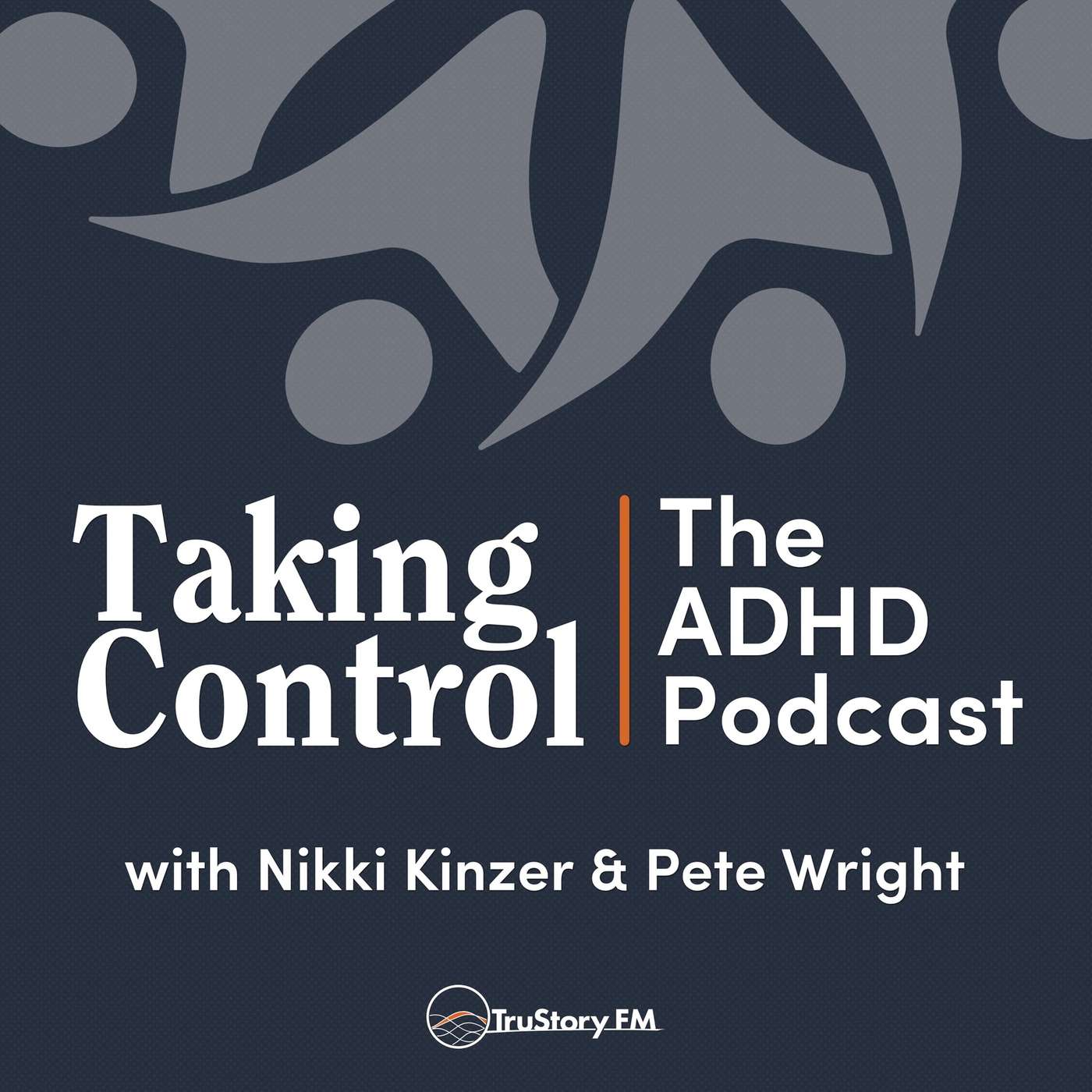
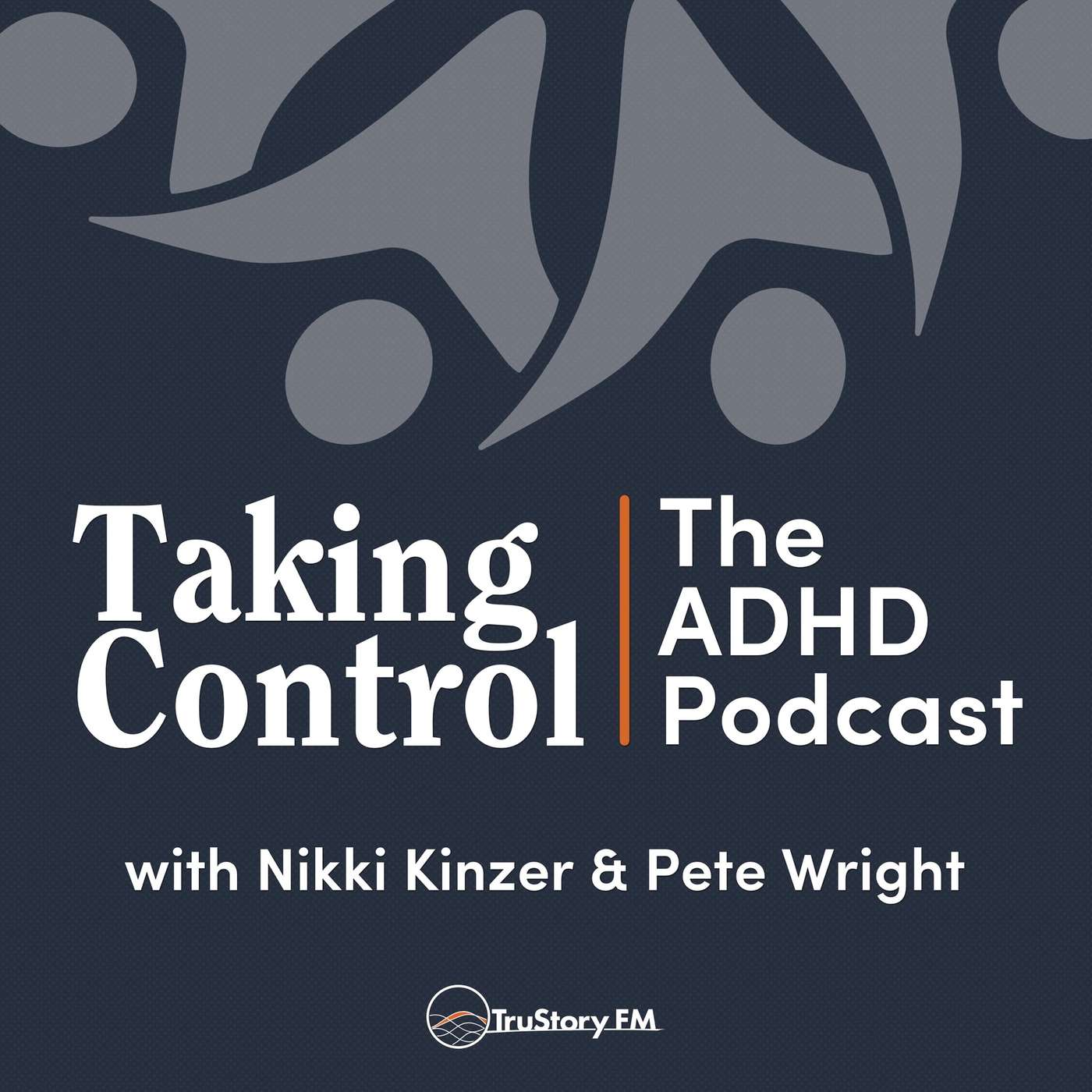

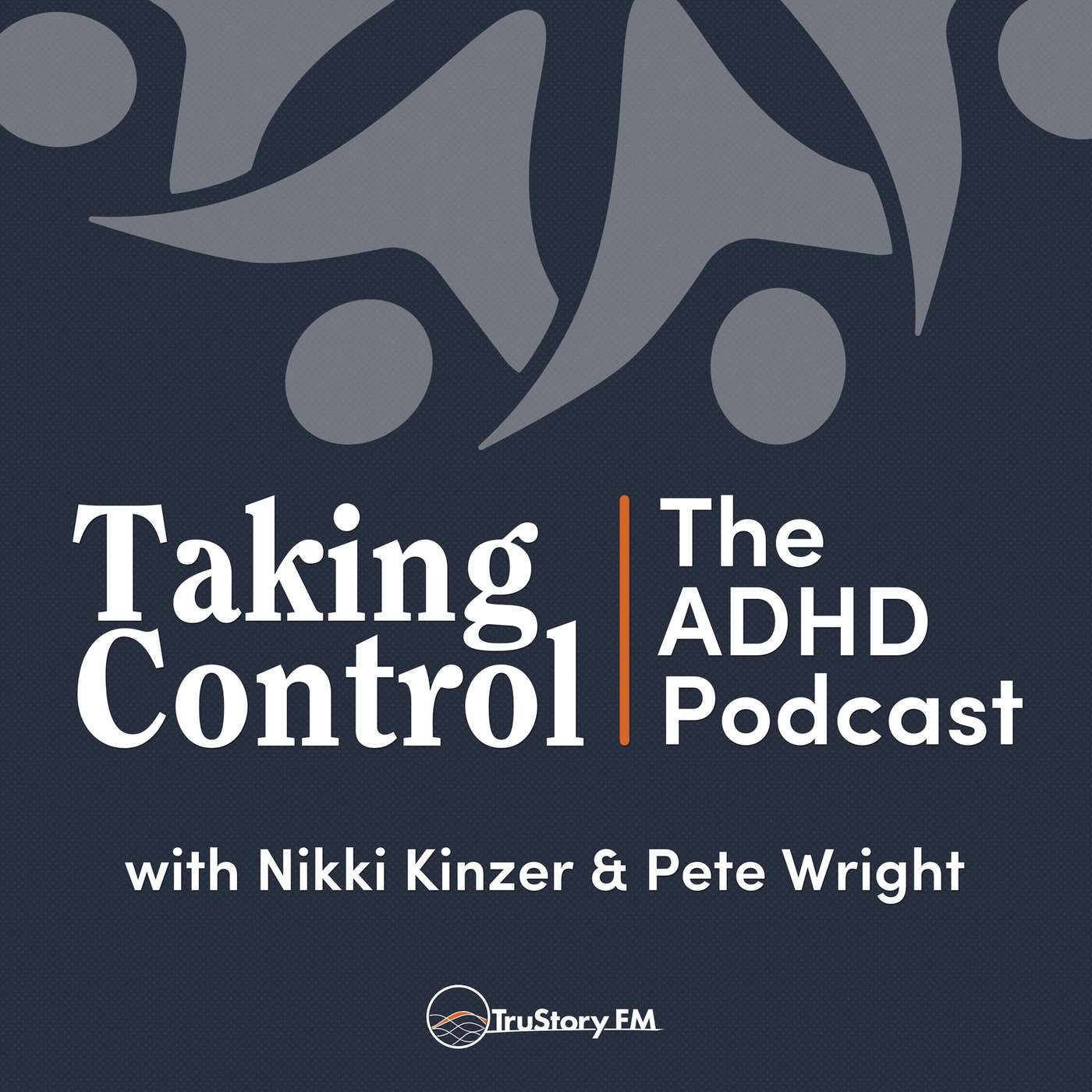

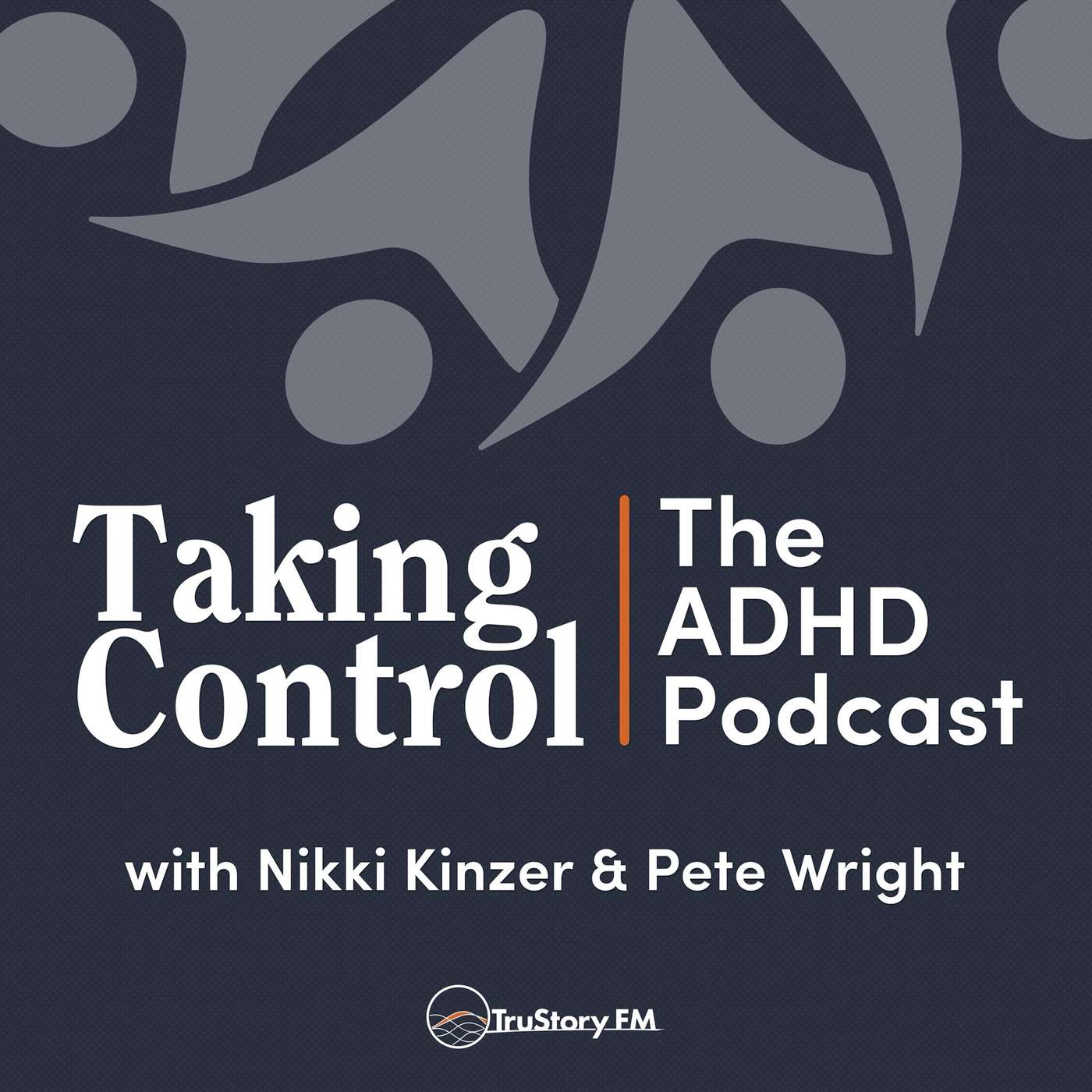
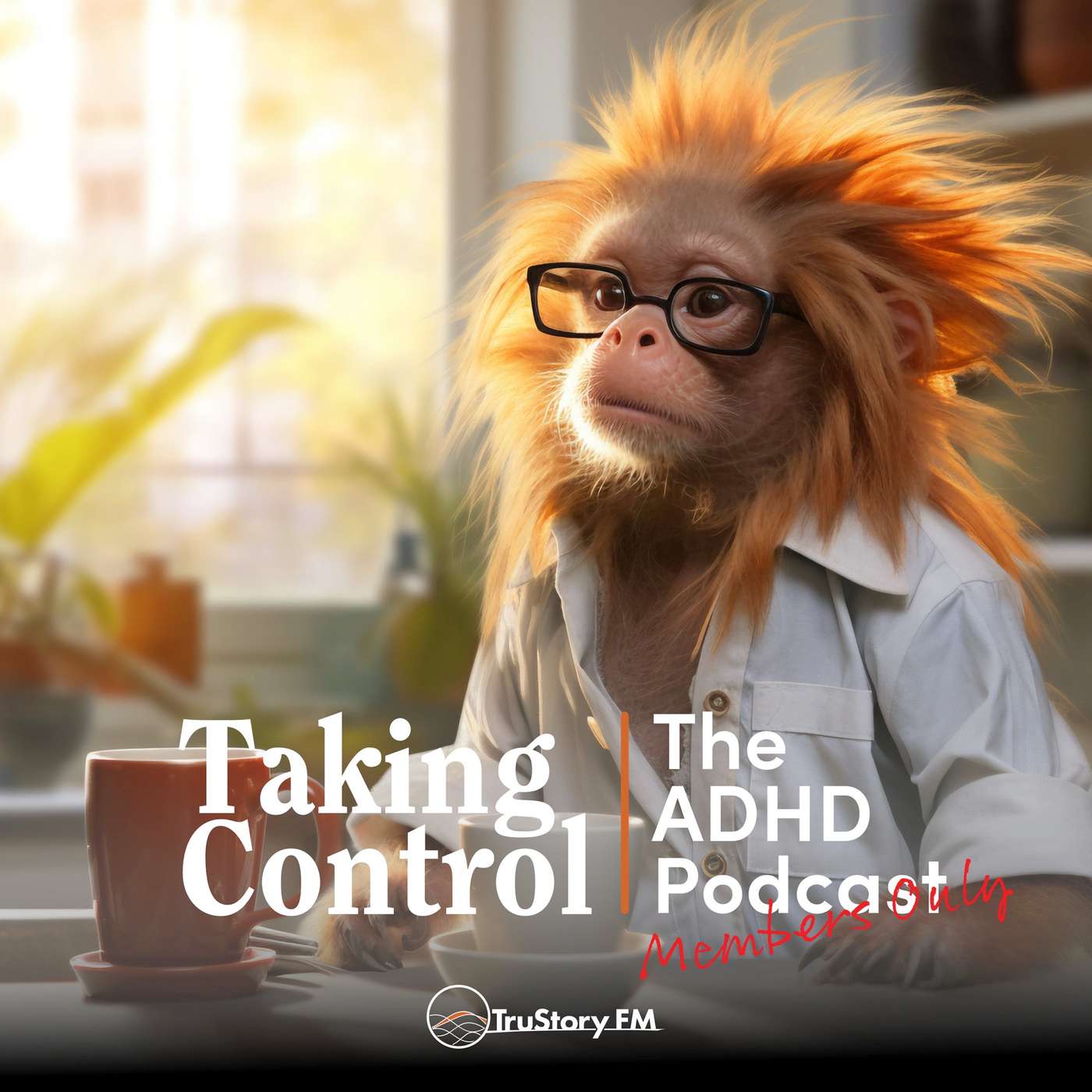
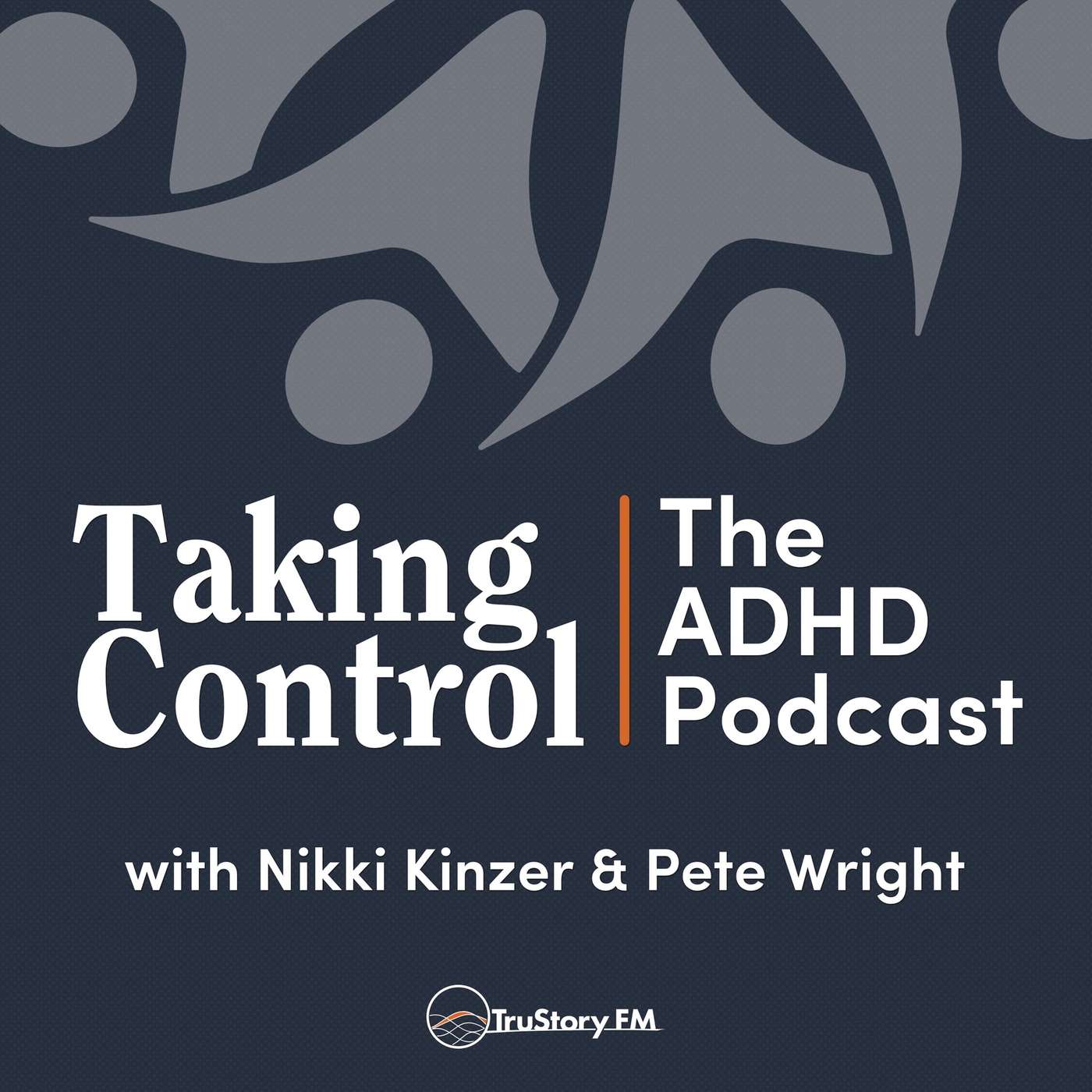
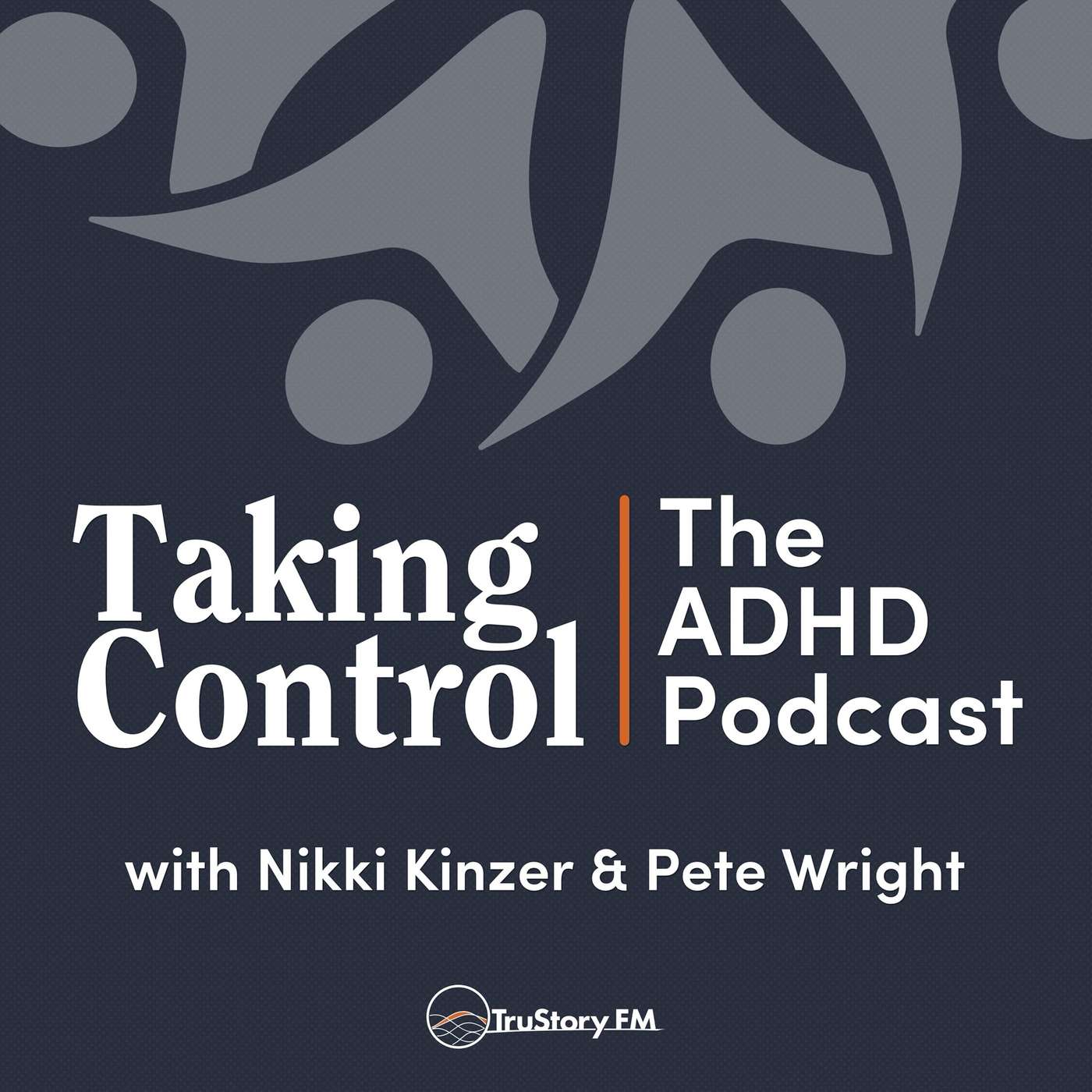
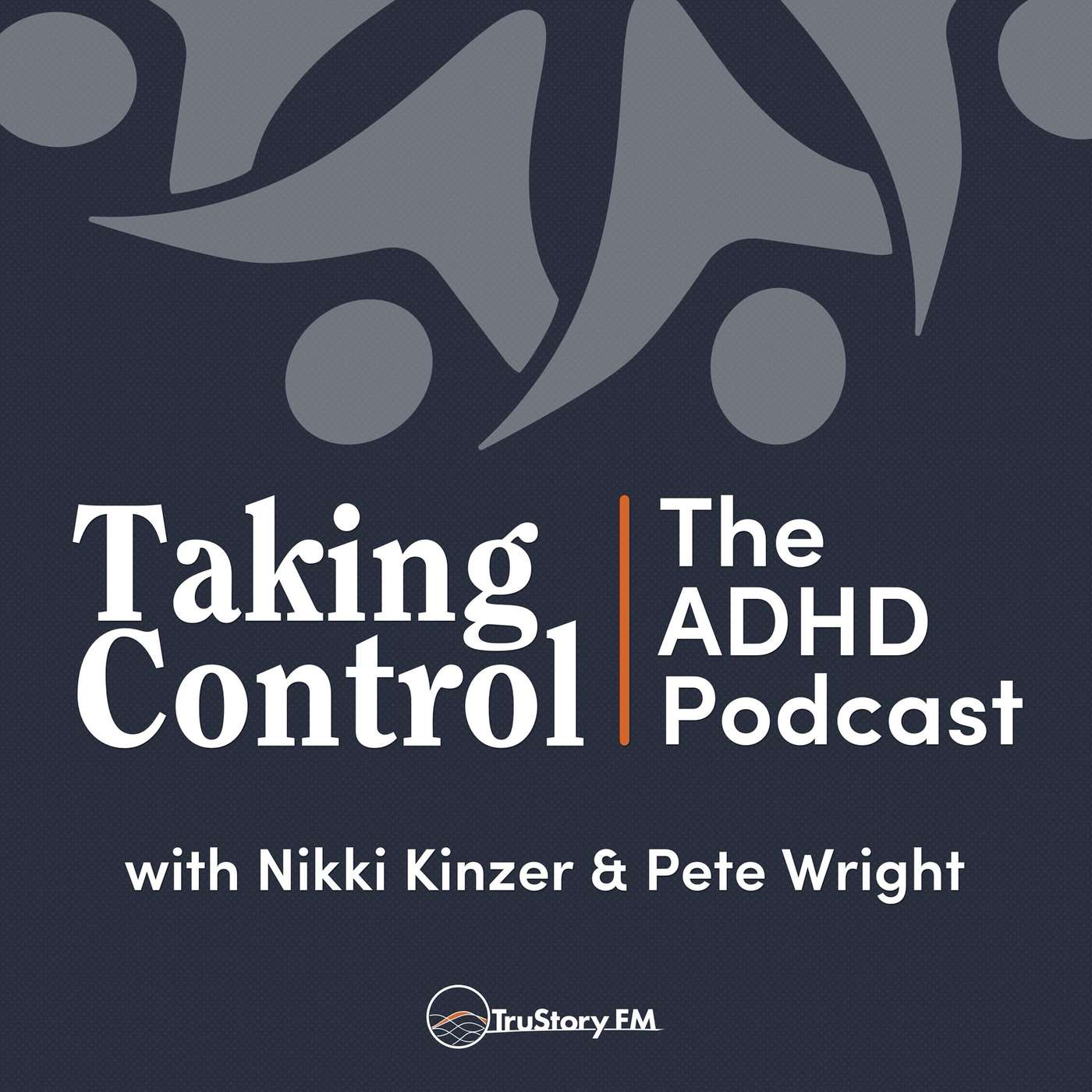
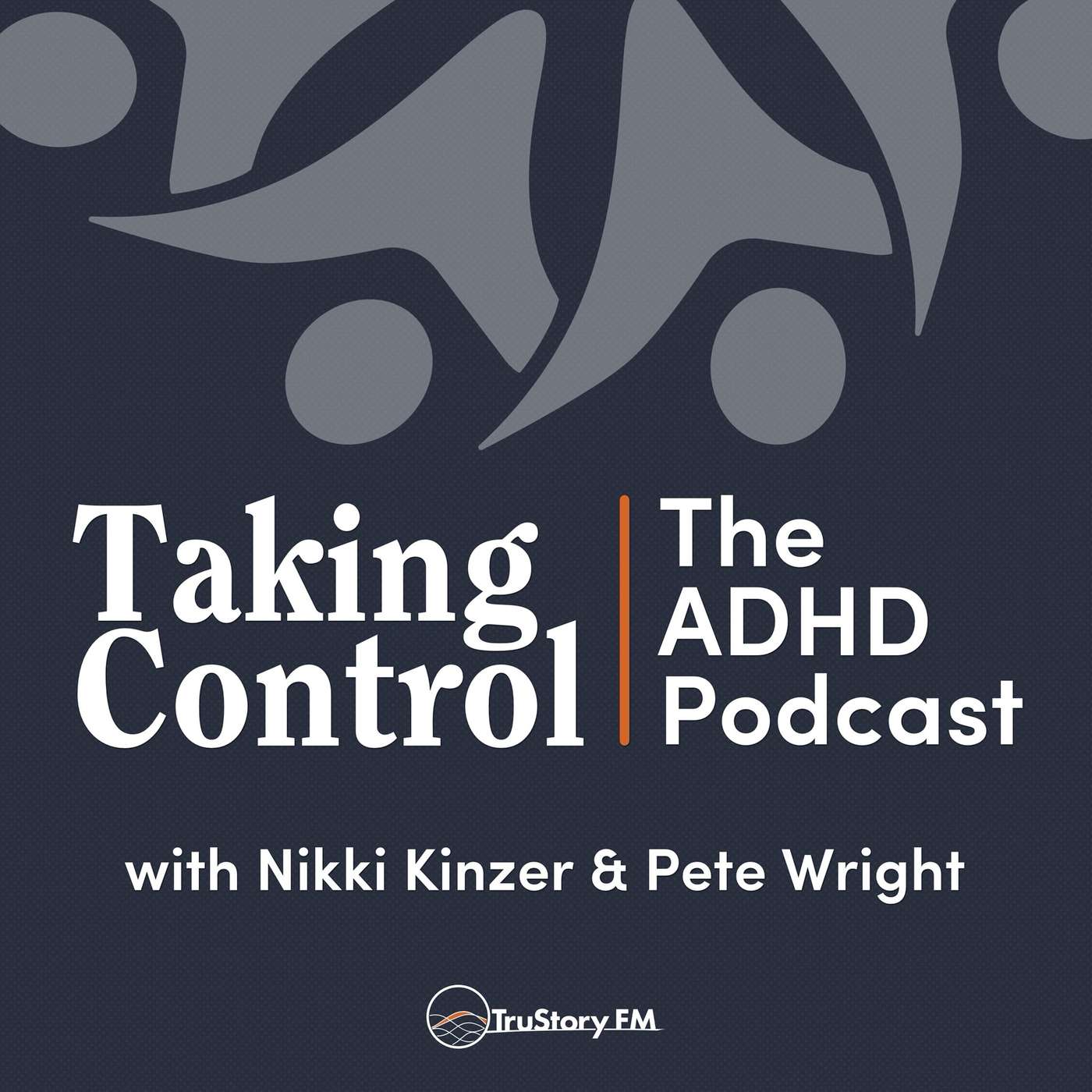
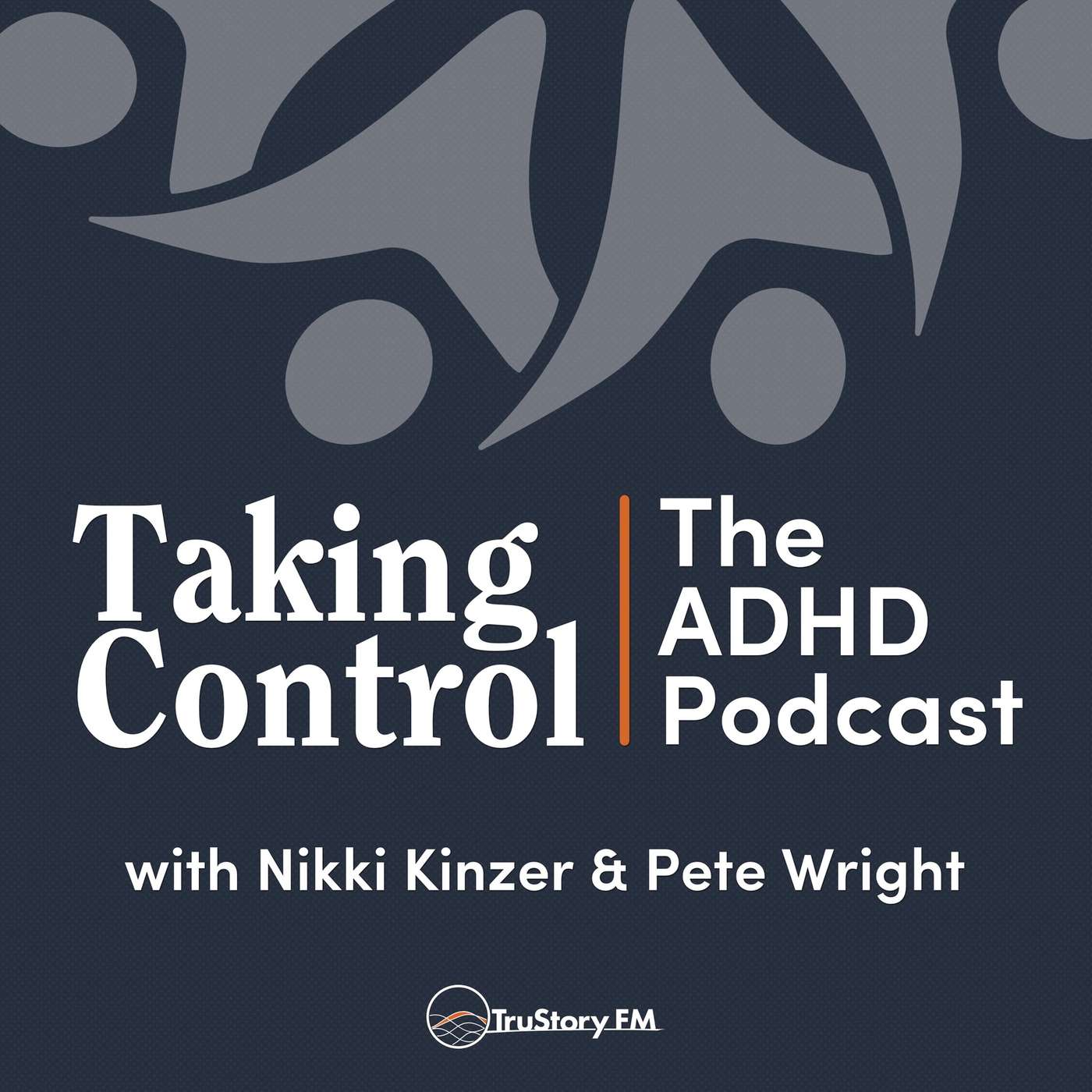
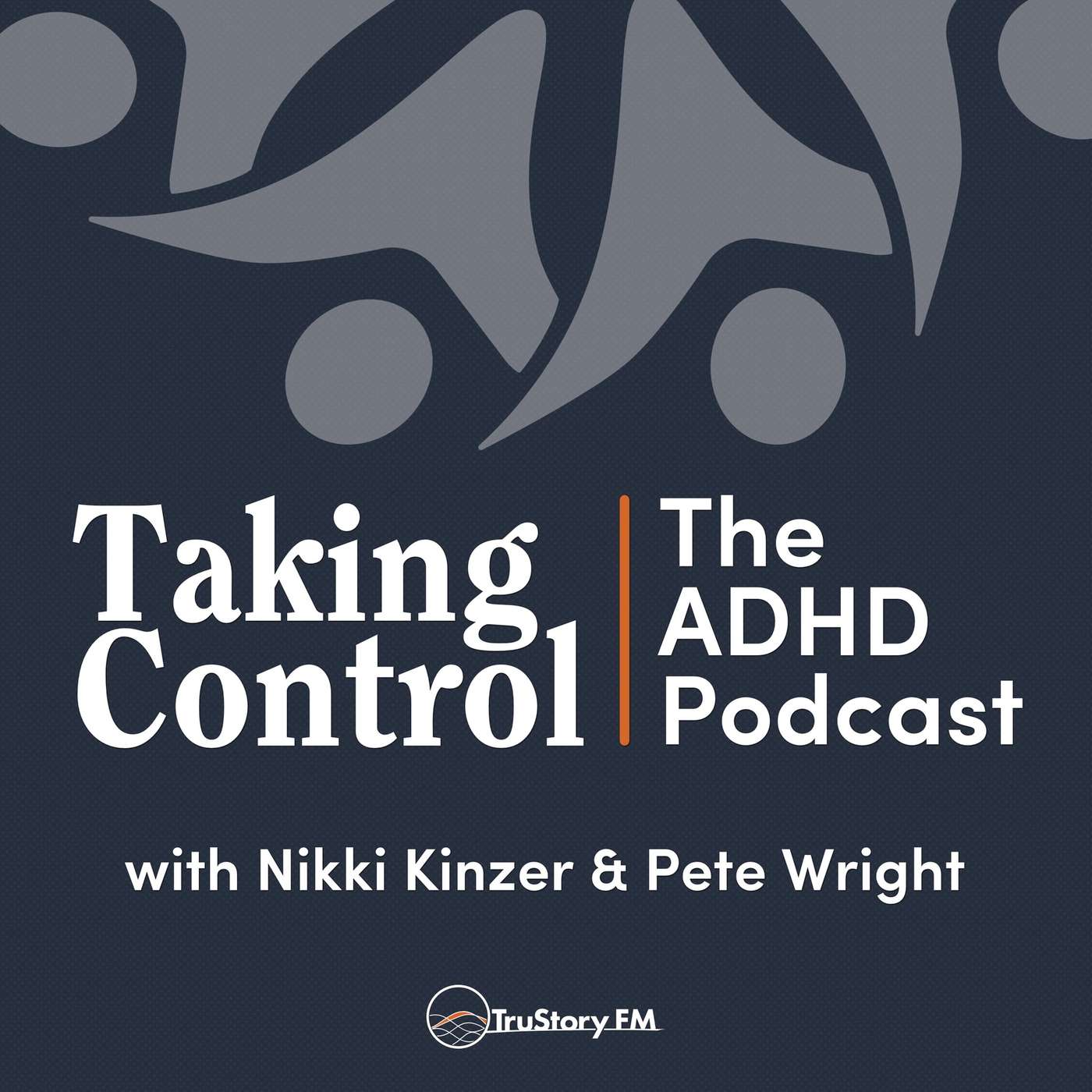
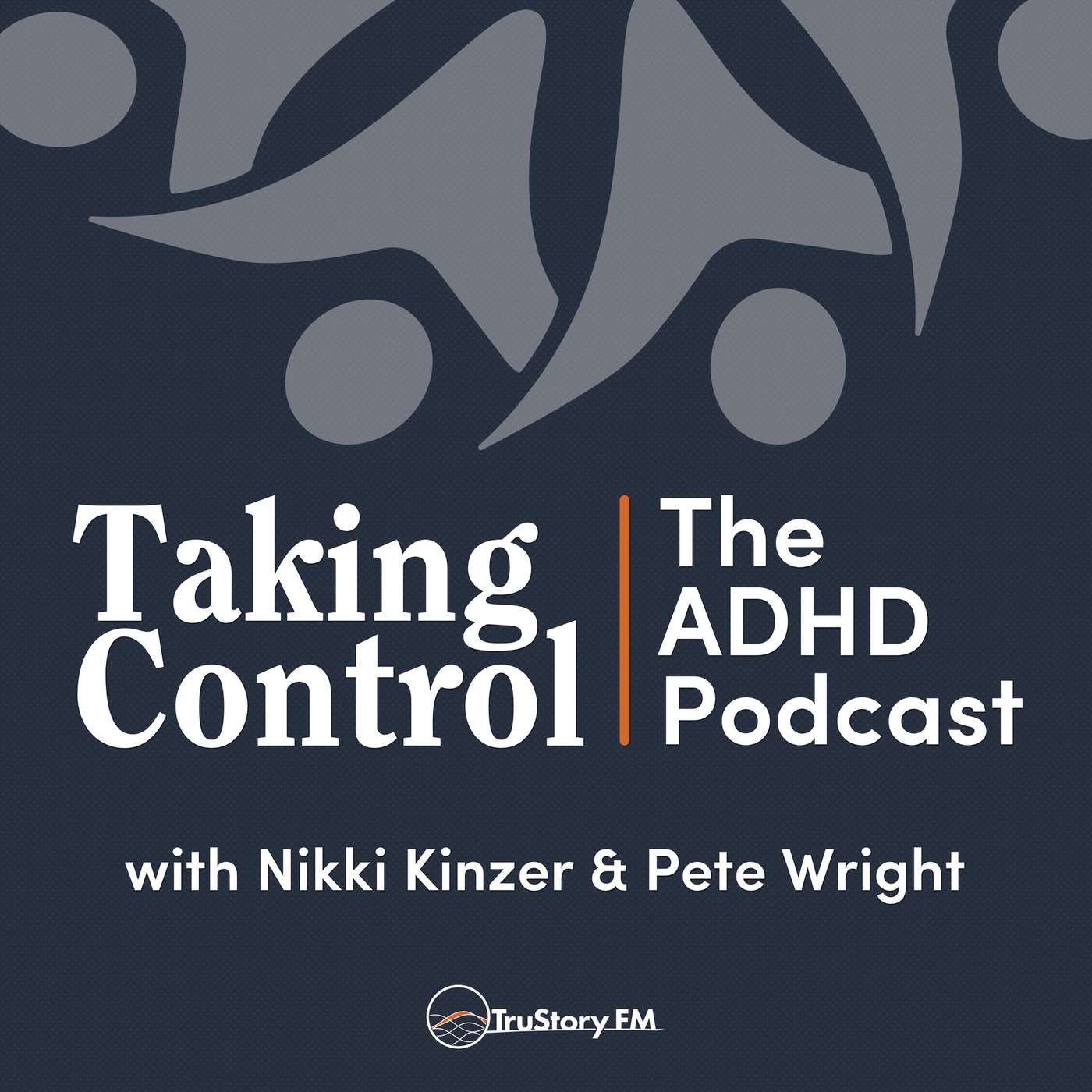
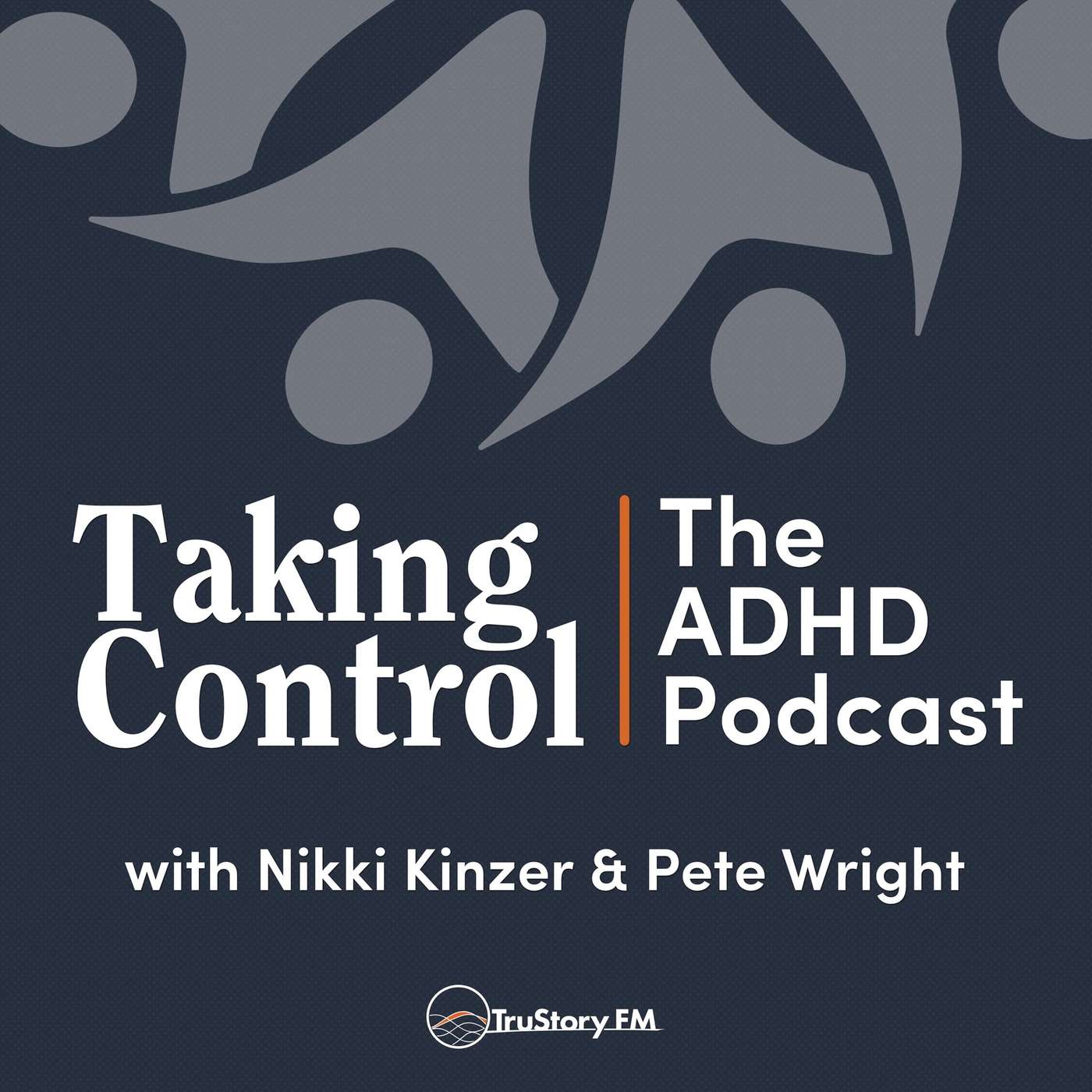
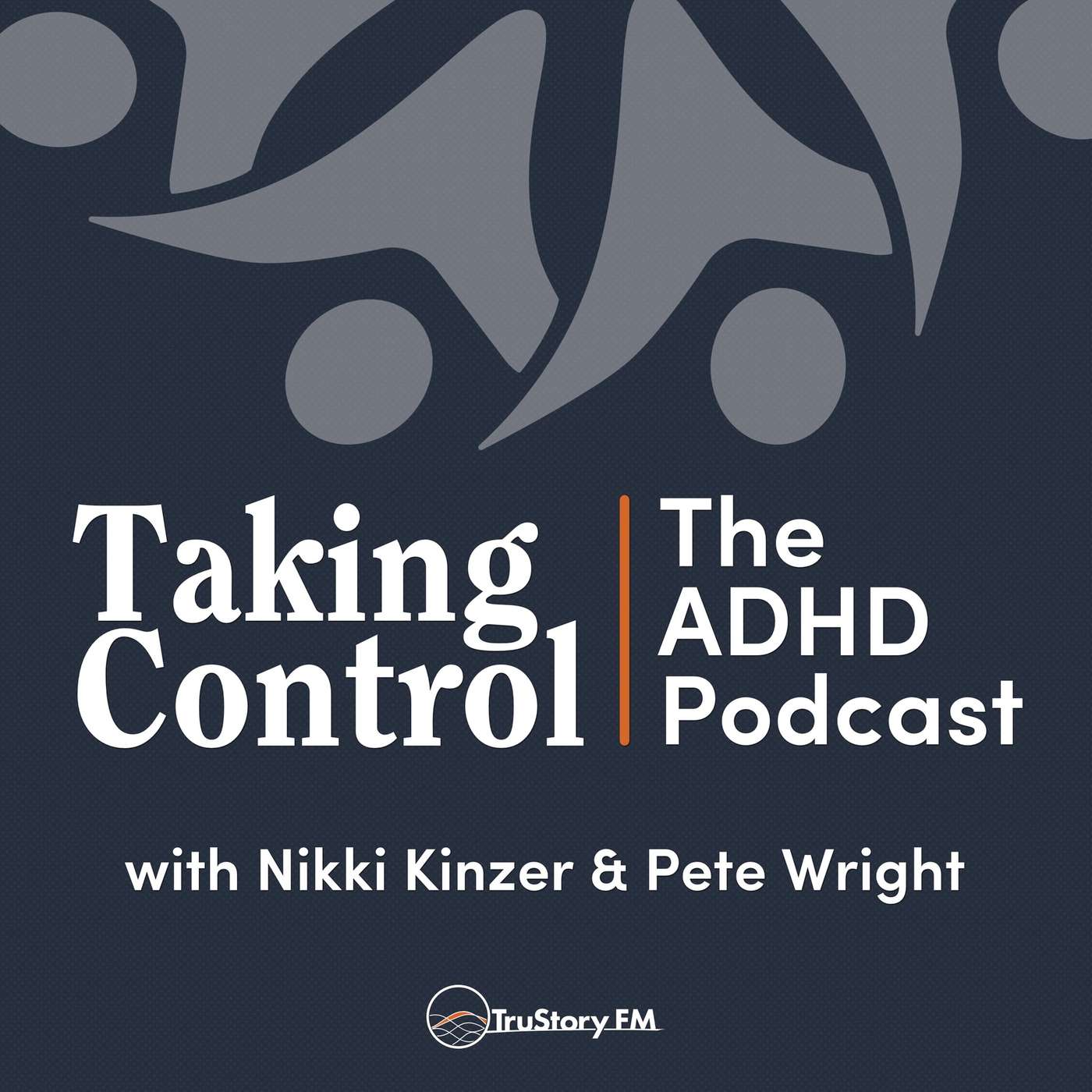

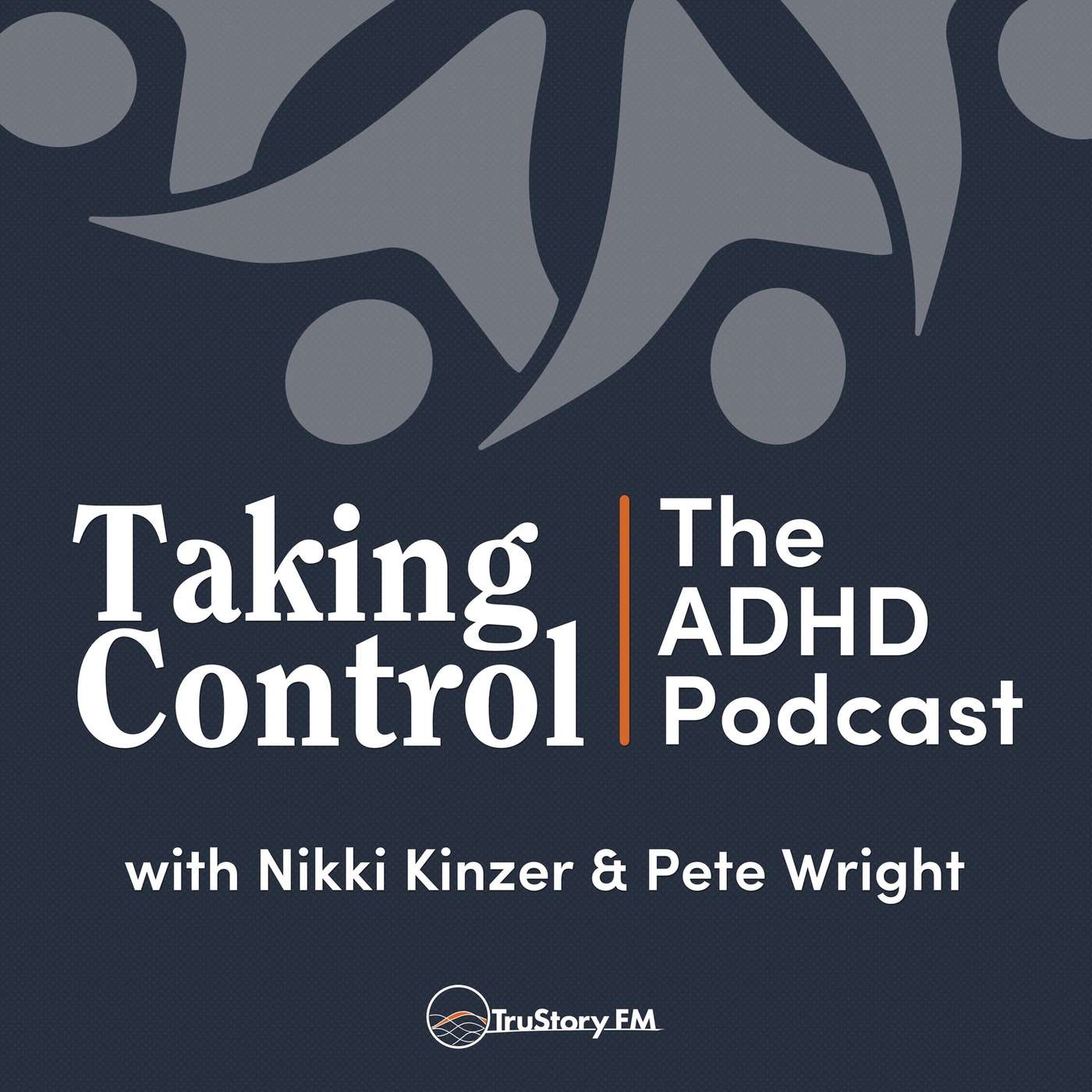



oh my gosh anxious overcorrecter is ME! I haven't ever had someone verbalise this and clarify what it is that I do. thank you!
this is amazing. I had never even thought of this as being a symptom or a reaction from ADHD. I just put it down to me being weird. knowing this means you can treat itand work through or with it. best podcast!
It was a great episode. thank you guys 🙏🏻😊
⅘ 00
I needed to hear it. Thank you!
good one! thank you!
I 💜💜💜💜 that Pete knows "We're All In This Together!" This episode made me feel so much better. It was so positive and encouraging. I so appreciated this!
great tips!
nice
This is just what I needed to hear today👍. Thank you!!!
I tried all of these that I could get my hands on, and then some, and I have to say, Tick tick is now taking some strides to outdo Todoist on Android! Todoist is linked with my Google home mini, but there are so many clicks to edit something, the widget is clunky, and you have to subscribe to use tags! It gets better with each update, they have been blowing me away these past couple months!!
I found your podcast a few weeks ago and it has completely changed my perspective on ADHD and how to thrive with it. I'm learning so much. Thank you so much for this podcast. Its life changing.
It seems like the link to your webcast isn't available in the description
Have you heard of The Secret Weapon Manifesto? http://thesecretweapon.org/the-secret-weapon-manifesto/manifesto-part-1-the-issue/ It combines GTD with Evernote and has saved my life! On top of that I can use my Google watch to say "take a note" and it will save whatever I need into my Evernote so I can come back to it later!
Thank you for this.